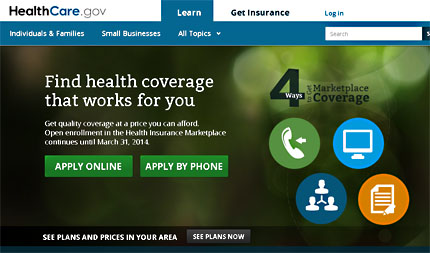Are red-state Democrat senators certain losers to Republican challengers in this year’s midterm election? According to recent polling, no. The races are all pretty close. But  Greg Sargent points out that these Democrats do indeed have an Obamacare problem:
Greg Sargent points out that these Democrats do indeed have an Obamacare problem:
In Arkansas, 52 percent would not vote for a candidate who disagrees on Obamacare, versus 35 percent who are open to doing that. In Louisiana: 58-28. In North Carolina: 53-35. It seems plausible the intensity remains on the side of those who oppose the law. This would again suggest that the real problem Dems face with Obamacare is that it revs up GOP partisans far more than Dem ones — exacerbating the Dems’ already existing “midterm dropoff” problem.
However, in Kentucky, the numbers are a bit different: 46 percent would not vote for a candidate who disagrees with them on the law, while 39 percent say the opposite — much closer than in other states. Meanwhile, Kentucky Governor Steve Beshear — the most outspoken defender of Obamacare in the south — has an approval rating of 56-29.
I’m keenly aware that I’ve never run for dogcatcher, let alone had any experience in a big-time Senate race. So my political advice is worth zero. And yet, polls like this make me more, not less, invested in the idea that running away from Obamacare is a losing proposition. Electorates in red states know that these Democrats voted for Obamacare. Their opponents are going to hammer away at it relentlessly. In practical terms, it’s impossible for Dems to run away away from Obamacare, and doing so just makes them look craven and unprincipled.
The only way to turn this around is not to distance yourself from Obamacare, but to try and convince a piece of the electorate that Obamacare isn’t such a bad deal after all. You won’t convince everyone, but you don’t need to. You just need to persuade the 5 or 10 percent who are mildly opposed to Obamacare that it’s working better than they think. That might get the number of voters who would “never” vote for an Obamacare supporter down from the low 50s (Arkansas, Louisiana, North Carolina) to the mid 40s (Kentucky). And that might be enough to eke out a victory.
Needless to say, this works best if everyone is pitching in. And surely this is the time to start. The early website problems have been resolved and the initial signup period has been a success. Conservative kvetching has taken on something of a desperate truther tone, endlessly trying to “deskew” the facts and figures that increasingly make Obamacare look like a pretty effective program. There are lots of feel-good stories to tout, and there are going to be more as time goes by. What’s more, the economy is improving a bit, which always makes people a little more sympathetic toward programs that help others.
Obamacare isn’t likely to be a net positive in red states anytime soon. But it’s not necessarily a deal breaker either. It just has to be sold—and the sellers need to show some real passion about it. After all, if they don’t believe in it, why should anyone else?













